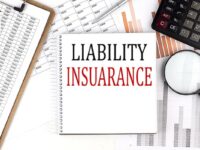To achieve maximum value for your business, look at it from a potential purchaser’s perspective.
Justify the value of your business with a ‘due diligence’ – Part 2
If you want to achieve maximum value for your business, it pays to assess it from a potential purchaser’s perspective. This is because a seller’s perspective often includes emotion, which has no value to a purchaser.
A savvy purchaser will perform a ‘due diligence’ as part of the process. Here are some aspects of this:
Business assets
- Are fixed assets included in the sale price listed and what is their book value, market value and replacement value and which is the purchaser paying?
- If business is a limited company, is the purchaser buying shares or the assets?
- If purchaser is buying inventory or work-in-progress, what is the value and will it be adjusted at the time of settlement?
- Is the purchaser buying intangibles and can they be transferred, e.g. contact database, business names, intellectual property, exclusive rights or leases?
Stock
- Is stock turnover comparable to industry benchmark?
- Does stock include slow-moving items from another business?
- Has inventory been valued in cost-of-goods statements?
- Has any inventory been sold and not shipped?
Equipment
- Is it in good repair, efficient, in danger of becoming obsolete or difficult to service?
- Are parts available and could it be sold easily?
- Is equipment depreciated and is it reasonable and based on accounting or tax?
- Is any equipment leased and what are the terms and cost of all leases?
- Will purchaser get ownership when leases expire and what are residual values?
Expenses
- Are all expenses known and will they be the same for a new owner?
- Could some expenses have been paid via another business?
- Have expenses been avoided or delayed, such as equipment maintenance, and could this be an issue later?
- Are any annual expenses due soon and are there new ones to consider?
- Are there maintenance contracts in place, what do they cover and are they paid up-to-date?
- How does the business’s expenses compare to industry benchmarks?
- Are any expenses prepaid and are they reimbursable?
- Will a purchaser be responsible for corporate body expenses?
- Would decreased or increased sales have an impact on costs?
- Are costs allocated to individual products/services and would any change in product/service mix affect them?
- Are there any ongoing regular expenses that a purchaser would need to honour?
Debts
- Are the assets being sold free of debts or liens and, if not, what are the terms of repayment?
- Are there any contingencies such as warranties, court actions or guaranteed debts or accounts? Is a purchaser assuming any risk of being liable for a previous owner’s actions?
- Will the cashflow from operations be enough to pay costs and obligations?
- Is interest paid for money loaned to the business?
Much of this information was gathered from a Queensland Government document and as you can see it’s a pretty long list. If you’re planning to sell your business anytime in the future it would pay to put a plan in place to address these issues to avoid having to discount your sale price in compensation.
Sue Hirst, Cofounder & Director, CFO On-Call












